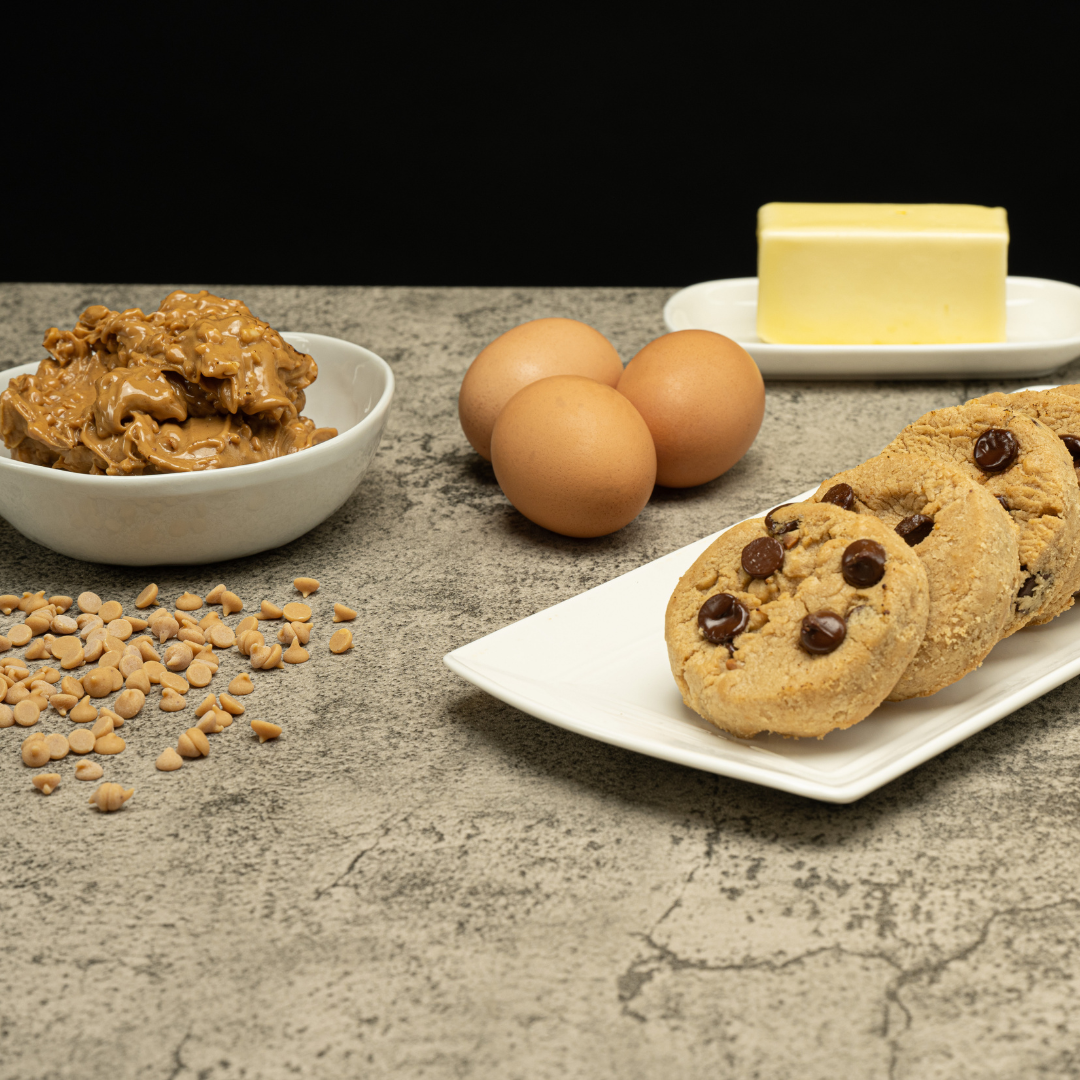Do you find yourself frustrated with small, chubby cookies that don't spread properly? Look no further, as we have the solution to your cookie-spreading nightmares. And make no mistake about it - lack of spreading is a little bit of a nightmare for budding cookie creators. Cookies are not too challenging to make and take very little in the way of expensive ingredients, but having all of your efforts laid to waste owing to something unforeseen, such as spreading, truly is an awful feeling.
In this article, we will provide you with all the information you need to know about making your cookies spread more and achieve that near-perfect cookie, regardless of which ingredients you have chosen.
It is important to grasp just why cookies fail to spread - the actual reason behind the phenomenon (without being all sciency about it, that is), so we will begin by offering a quick explanation of why it happens in the first place, before taking a step by step look at how to make cookies spread more
But first, what exactly is spreading, and why does it need to happen during the baking process?
Why We Need Good Spreading
Cookies that don't spread during baking can end up losing a little (or a lot) of their sparkle. They are also not too appealing to the eye, with a displeasing chubby look.
One reason cookies need to spread is that it helps them cook more evenly. If a cookie is too thick and doesn't spread, the center may remain undercooked while the edges burn. Common sense, when you think about it. Additionally, spreading allows the cookie to develop its signature texture: a slightly crispy exterior with a soft and chewy center.
Another reason why cookies need to spread is for their general appearance. Cookies that don't spread can end up looking small and quite thick, while spreading results in larger, thinner cookies with a more visually appealing shape.
Overall, cookie spreading is an important aspect to consider when baking to achieve the desired taste, texture, and appearance. Yes, failure to spread - or overspreading - can lead to a disastrous bake, but thankfully, it isn't too difficult to nail perfection.
Let's take a look at how to do just that. In other words, we've got you.
How To Ensure a Good Spread

Using a few different methods, here are some great ideas to help achieve a much better spread. You probably know one or two (at least), but we do have a few curve balls thrown in, starting with the first tip, which might surprise you as it goes against the common and trusted principle of using chilled dough.
Warm Dough
To encourage a good spread during baking, you may want to try using warm cookie dough instead of refrigerating it. Refrigeration causes the fats in the dough to solidify (especially the butter), which is usually a good thing, but if it solidifies too much, it can slow down the spreading process. The longer it takes for the cookie dough to start spreading in the oven, the less likely it is to spread evenly.
The end result with this uneven spread is quite obvious, really, leading to an outer crust that cooks too quickly and becomes overly crisp while the center remains undercooked. By using warm cookie dough, you can encourage faster spreading and ensure that your cookies have a soft, chewy texture with a thin, crispy edge.
Using warm dough is not a suggestion you will hear too often, as one of the core tenets of baking cookies with chilled dough. Dare to be different, however, and try less common techniques like this, and you might be surprised at the results.
Chilled Dough
Having said that, we are going to directly contradict the previous advice by suggesting you do indeed try chilled dough as your default method! All we are saying is that If you are having issues using chilled dough, try the warm option instead.
When the dough is chilled, the fat solidifies, allowing the cookies to hold their shape better during baking. That's a good thing, as previously mentioned, but owing to subtle variations of butter brands, the end result can sometimes disappoint.
So, try chilled dough as your default approach. If that fails time after time, try warm dough instead, and you will probably see a marked improvement.
Get Your Oven Nice and Toasty
Always preheat your oven before baking cookies. An oven that's not hot enough can cause the cookies to spread too much, resulting in flat and thin cookies.
Cookies tend to spread more when baked in a warm, preheated oven because cookies typically contain fats such as butter, margarine, or coconut milk, which are solid at cool temperatures but become liquid when warmed. The temperature of your oven plays a critical role in the amount of spread your cookies can achieve, as it affects the speed at which these solid fats melt.
Essentially, the faster the fats melt, the quicker the cookies will spread, resulting in that perfectly crispy, chewy texture we all crave.
Use Fresh Baking Powder
Baking powder usually has a shelf life of between 6 to 12 months after opening, but this time frame could be even shorter if the storage conditions are unfavorable. The sensitivity of baking powder to moisture and humidity in the air could expedite its expiration, particularly when it's kept in a warm and humid place.
So how does expired baking powder affect the spread of cookies? Well, since baking powder serves as the primary leavening agent in most cookie recipes, expired baking powder can cause the cookie dough to become more compact and dense, making it difficult for it to spread out. Instead of expanding and flattening, the cookie dough will retain its tight and dense ball-like shape. Keep an eye on the expiration date, and try to use the freshest baking powder you have. Anything over 6 months old might cause spreading problems, basically.
Use the right baking sheet
The type of baking sheet you use can also affect how your cookies spread. Use a heavy, high-quality baking sheet that heats evenly to ensure your cookies bake uniformly. Parchment paper or a silicone baking mat is also a good option for encouraging a nice spread.
Use a Scoop & Don't Overcrowd

Not enough people use scoops, but they can make a huge difference towards a nice spread by ensuring a nice uniformed size of each cookie. This should negate the ‘odd one or two’ coming out of the oven with a poor spread.
Also, don't throw the cookies together too close to each other. They will benefit from a little more space to encourage better airflow and room to spread out. Just like humans, really!
Don't Overmix
While it is quite tempting to really get stuck into the mix - this is quite a fun step of the process, after all - by doing so, you might be encouraging the development of gluten, leading to tough and chewy cookies from overspreading.
Add More Liquid
This is another one that might be a little obvious to many of you. If you've ever made the mistake of using several tablespoons of liquid instead of a few teaspoons, you know how poorly cookies that contain a lot of liquid retain their shape. Your cookie dough will begin to spread before it is even put into the oven if you add a little more liquid.
This contributes to the fact that melted butter spreads cookies more quickly than butter that is solid at room temperature. The ratio of liquid to solid ingredients in your cookie dough is immediately increased when you melt the butter and make it into a liquid rather than a solid ingredient.
Hope Is Not Lost
Diligence, as always, is key. Keep a close eye on your cookies every couple of minutes or so, and if, towards the end, you notice they are not spreading, this might not necessarily spell disaster because there is a little trick you can deploy.
Simple, really, isn't it? Just remove the baking sheet from the oven and tap it a few times on the counter. This will lead to reverb through the cookies, hopefully encouraging them to spread. It will not always work, but much of the time, it will. Just a few quick taps, literally shaking up the inside of the cookie, and you should be good.
Happy Spreading!
That's all there is to it! We wish you all the very best in your cookie-making endeavors, and by following these tips, there really is no reason why your cookies should fail to spread. Remember to have fun, and check in with The Cravory blog for more great tips on all things cookies.







